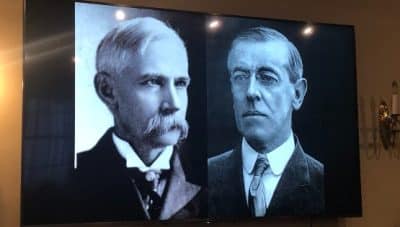Column by David Cox
Some things are downright immoral. In my book, and, I’ll suggest momentarily, the Good Book, payday lending is one.
Payday lending is the business that offers small, short-term loans to tide the borrower over, say until the next paycheck comes in. For example, someone might borrow $100 for two weeks, paying a $15 charge. Fifteen percent doesn’t sound unreasonable. But, if that loan isn’t paid off, but instead is rolled over to the next week, and the next, pretty soon interest fees soar – as high as 390 percent on an annualized basis.
And that’s where the problems really start, not just fiscally for the borrower whose mountains of debt get steeper by the week, but morally. For borrowers are often those at the bottom of the economic scale, and/or who face some urgent need.
Every culture I know of says it’s wrong to kick a person when he or she is down. In the Judeo-Christian tradition, from Torah to New Testament, Scriptures repeatedly castigate taking advantage of a neighbor. To cite one of many examples, Exodus 22:25 declares, “If thou lend money to any of my people that is poor by thee, thou shalt not be to him as an usurer, neither shalt thou lay upon him usury.”
Usury is the charging of interest – that is, as a newer translation puts it, “You shall not deal with them as a creditor; you shall not exact interest from God’s people.” On the contrary, the Law commends mindfully attending to the neighbor’s need. If you borrow a coat, it says in the very next verses, return it by nightfall because it may be his only covering to shelter him from the cold.
Many remember what Jesus said about giving one’s coat.
Twelve states ban payday lending. It was proposed to most recent Virginia General Assembly session. Some wanted to restrict annualized interest to 36 percent. Then some compromised at 72 percent. Then it got dropped.
So now comes the Staunton City Council, that last week unanimously passed a resolution asking the Assembly to cap any loans at 36 percent interest. Though not a huge issue in Lexington/Rockbridge, still our city council and supervisors will hear from Staunton asking them to join in a grassroots appeal to the General Assembly to do the right – the moral – thing.
Of course, it’s unethical if not immoral simply to say to a practice that, while I think it’s immoral, does reflect a need. If, as payday lenders protest, they go under because they can’t afford to do business at 36 percent interest, where will people go who need such loans?
Fortunately, a group called Virginians Against Payday Lending is joining with commercial institutions to provide just such a service, one that meets the need but in morally, ethically responsible way.
All this bodes well. It provides a way of ending a practice that preys upon the poor while also giving an option of something better.
I believe the Assembly should ban this predatory form of lending. But even if it doesn’t, establishing these alternatives may end abusive lending fees by means of the free market.
And in the process, we will be looking after our neighbors.
David Cox is the Democratic Party nominee in the 24th Senate District.










